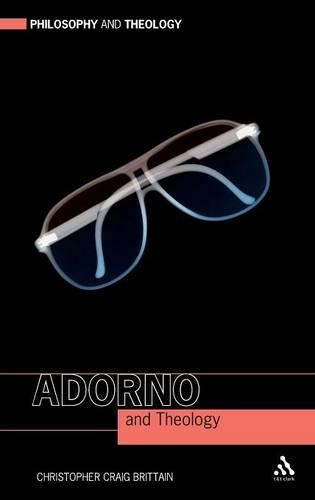
Adorno and Theology
(Hardback)
Available Formats
Publishing Details
Adorno and Theology
By (Author) Rev Dr Christopher Craig Brittain
Bloomsbury Publishing PLC
T.& T.Clark Ltd
22nd July 2010
United Kingdom
Classifications
Professional and Scholarly
Non Fiction
Theology
Philosophy of religion
Philosophy
230
Physical Properties
Hardback
256
Width 138mm, Height 216mm
531g
Description
Theodor WiesengrundAdorno (1903-1969), the German sociologist and philosopher was one of the intellectual leaders of the post-war Frankfurt School. This book presents and analyzes Adorno's writings on theology and religion in a clear and accessible manner. It is targeted at upper level undergraduate and postgraduate students, and will not presuppose any familiarity with Adorno.The book includes a general introduction to Adorno's thought, and examines his relationship with the work of Walter Benjamin and Jewish theology, his confrontation with scientific positivism (Karl Popper), and his criticism of the "Culture Industry" and ideology. All of these topics are explored with attention to how they engage with contemporary debates within theology. This is accomplished by bringing Adorno's work into dialogue with major concerns and authors. The volume concludes by highlighting an often neglected aspect of Adorno's writing - his philosophy of music - and how this aesthetic appreciation of the sublime informs contemporary theological reflection.
Reviews
In complex and often deeply puzzling ways, Adorno's thinking was profoundly informed by theology. While rigorously adhering to the prohibition of images, he all the same argued that theology contains a utopian aspiration that no genuine critical theory can do without. This book stands out as one of the most lucid and comprehensive studies of the theological strands of Adorno's thinking. In the absence of confession and after the "death of god," it testifies to the continuing philosophical value and relevance of religion.' - Espen Hammer, Temple University, Philadelphia, PA, USA. -- Espen Hammer
Author Bio
Christopher Craig Brittain is Dean of Divinity and Margaret E. Fleck Chair in Anglican Studies at Trinity College, University of Toronto, Canada
